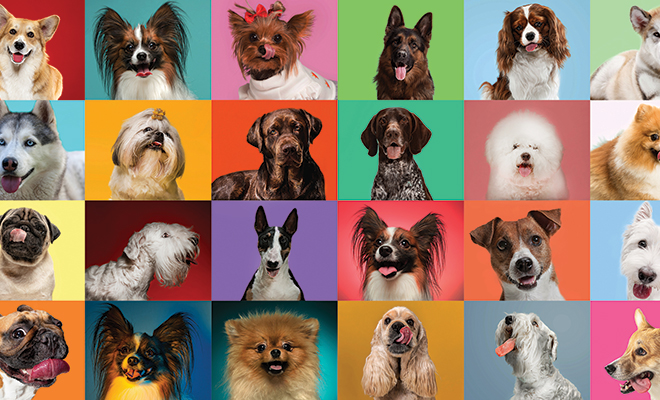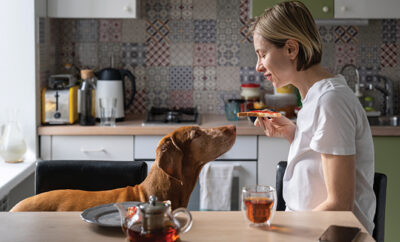
Post-Pandemic Pups: What’s a Pet Parent to Do?
The pandemic has been hard on everyone, but there is one group that came out on top: dogs! As a result of quarantine, more dogs have spent their days lounging at their owners’ feet, going on frequent walks and getting extra belly rubs.
Many people also adopted a dog during the pandemic, a huge win for shelter dogs. However, many of these dogs never experienced waiting at home while their owners were away at work. Now that life is beginning to go back to normal, how can we help our best buddies who have grown accustomed to our additional attention?
As a dog owner and animal rescue advocate, I sought expert advice to help you stay connected to your beloved family member. Much of this advice I will put to work with our own dog, Lola, a rescue mutt with extreme separation anxiety. She was only one year old when the pandemic hit, so she has rarely been alone for too long and she gets nervous when she goes somewhere new. It’s helped Lola; hopefully it will help yours too.
Crate Training
Craig Cook, a dog trainer, advises crate training if your dog has separation anxiety. Start slowly by leaving your dog in the crate for short periods of time, and work your way up to the amount of time you have to be gone. Dogs prefer to sleep in den-like conditions, so as long as you introduce the crate in a positive way, your dog should grow to like sleeping in it. Use common sense when crate training; make sure you take your dog out before you leave, never use the crate as a form of punishment, and do not keep any toys or beds in it that could be a choking hazard. If your dog is potty training, don’t leave food or water in the crate. When Cook trains his dogs, he briefly puts them in their crate while he is at home so they don’t connect the crate with his absence. Above all, Cook said, “Patience is your best friend…don’t focus on the NOs and the spankings; it’s a waste of time and energy and you will regret it later. Stay positive and show your dog the right way to do things.” And don’t forget the treats!
Co-Parenting
Tammy and Andy Heath work for the cruise industry, so they are gone four to six months at a time. During the pandemic they decided to foster a dog with plans to find her a forever home by the time they returned to work. After a short time with Cruiser, a Westie, plans changed. “We can’t give her up. We absolutely fell in love with her. She’s such a wonderful little dog,” Tammy said. They sail out in October and have the perfect solution to keep Cruiser: Co-parenting! A trusted friend will care for Cruiser until they return. While their situation may be unique, many families could benefit from this idea. If you have a dog-loving family member or close friend who works from home, is retired, or has a flexible schedule, consider making arrangements to share your dog while you are at work. It’s a win-win for you, your dog and the co-parent.
Be a Good Neighbor
The Heaths are not just wonderful dog owners, they are also helpful neighbors. Tammy estimates that four days a week they let out their neighbors’ dogs while their owners are away at work or traveling. The Heaths’ whole neighborhood is filled with friendly people who look out for their neighbor and their neighbor’s dog. If your neighborhood isn’t quite like this, take the first step in making a change. Working with your neighbors and offering to help them in return is a great solution to relieving your dog’s separation anxiety.
Hire a Trainer
Hiring a trainer is a smart way to help you and your dog learn and gain confidence. Just getting your dog out and around new people and other dogs is beneficial. Do the research and find a trainer and a program that fits your specific needs.
The Basics
It’s critical to remember that dog training is an ongoing process. You have to put in the effort, be consistent and use positive reinforcement. If your dog is misbehaving, instead of getting angry, ask yourself: Are they bored? Have they been for a walk or played fetch? Dogs, like humans, need exercise and a lot of attention. Dogs love to learn, but what they love most of all is to be with you, their human. You have an entire life outside of your relationship with your dog, but you are your dog’s world. Do your best to love and care for them for the short time you have with them. ■







